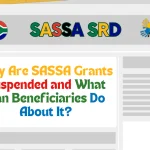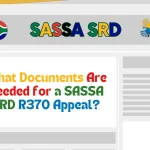Can millions of South Africans afford to lose their only source of financial relief? With the SRD grant set to expire in March 2025, uncertainty is growing. Will the government extend it, replace it, or end it altogether? As the cost of living soars and unemployment remains high, many are left wondering: What happens next?
Here’s everything you need to know about the future of the Social Relief of Distress (SRD) grant and what it could mean for you.
Quick Answer: Will the SRD Grant Be Extended?
The SRD grant has been extended until March 2025, but its future remains unclear. The South African government is considering further extensions or replacing it with a Universal Basic Income Grant (UBIG). No final decision has been made, and discussions are ongoing. Beneficiaries should stay updated through official announcements from the government and the South African Social Security Agency (SASSA).
What Is the SRD Grant?
The Social Relief of Distress (SRD) Grant is a temporary financial aid program introduced by the South African Government and administered by the South African Social Security Agency (SASSA). Initially launched in 2020, its purpose was to assist unemployed individuals and vulnerable citizens affected by the COVID-19 pandemic. Over time, the grant has evolved into a crucial support mechanism for millions of South Africans who do not qualify for other forms of social assistance.
With a current monthly payment of R370, the SRD grant helps recipients meet basic needs such as food, utilities, and essential services. The government periodically reviews its extension and sustainability, with ongoing discussions about incorporating it into a broader social welfare system or replacing it with a Universal Basic Income Grant (UBIG).
Economic Impact of the SRD Grant
The SRD grant has played a significant role in boosting household income and alleviating poverty. It has also contributed to local economies by increasing consumer spending, particularly in low-income communities. However, some economic experts argue that prolonged dependence on grants could impact labor market participation and overall economic productivity.
Could the SRD Grant Be Replaced by a Universal Basic Income Grant?
One of the most discussed alternatives to the SRD grant is the Universal Basic Income Grant (UBIG). This initiative aims to provide all eligible South Africans with a fixed monthly payment to ensure financial stability
SRD Grant Extended Until March 2025
Initially introduced in 2020 to assist those affected by the COVID-19 pandemic, the SRD grant has become a crucial support system for over 9 million unemployed South Africans. President Cyril Ramaphosa reaffirmed the grant’s extension in the 2024 State of the Nation Address (SONA), underscoring its role in poverty alleviation.
Finance Minister Enoch Godongwana further solidified this commitment by allocating R33.6 billion for the SRD grant in the 2024 fiscal year, with additional funding earmarked for 2025/26 and 2026/27. Additionally, the grant amount was increased from R350 to R370 to help offset inflation-driven price hikes.
However, while this extension provides temporary relief, the long-term sustainability of the grant remains a pressing concern.
What Happens After March 2025?
The government has not yet provided a definitive answer regarding the SRD grant’s fate beyond March 2025. Policymakers are weighing multiple options, including:
- Further extending the SRD grant with possible adjustments to eligibility criteria and funding mechanisms.
- Integrating the grant into a broader social assistance framework for long-term sustainability.
- Replacing the SRD grant with a Universal Basic Income Grant (UBIG) to provide financial security to unemployed individuals.
The final decision will depend on several factors, including economic conditions, government revenue, and ongoing policy discussions.
Funding Challenges and Government Budget Concerns
Sustaining the SRD grant or transitioning to a Universal Basic Income Grant (UBIG) requires significant financial resources. The government must explore new revenue streams or reallocate funds from other social programs. Potential funding options include:
1. Increasing Tax Revenue Through Progressive Taxation
Progressive taxation is a system where higher-income individuals pay a larger percentage of their earnings in taxes compared to lower-income groups. This approach ensures that the tax burden is distributed fairly, helping to generate additional revenue for social programs like the Social Relief of Distress (SRD) grant or a potential Universal Basic Income Grant (UBIG).
How It Works:
- The government can increase tax rates on higher-income brackets while keeping lower-income earners’ tax obligations minimal or unchanged.
- This method prevents excessive financial strain on low-income populations while ensuring that wealthier individuals contribute more to public welfare programs.
- Countries with strong welfare systems, like Norway, Sweden, and Germany, successfully implement progressive taxation to fund social security programs.
Challenges:
- Higher tax rates on the wealthy might lead to tax avoidance strategies, reducing the effectiveness of revenue collection.
- If not structured properly, increased taxation on businesses could discourage investment, slowing economic growth.
2. Implementing Wealth Taxes on High-Income Individuals
A wealth tax is a direct levy on individuals’ net assets, including property, investments, and other high-value holdings. Unlike income tax, which applies to yearly earnings, a wealth tax targets accumulated assets.
How It Works:
- Governments can impose a small percentage tax on net wealth exceeding a specific threshold (e.g., assets above R5 million).
- This ensures that the ultra-rich contribute proportionally more to public welfare without overburdening middle-class and lower-income individuals.
- Countries like France, Spain, and Switzerland have implemented forms of wealth taxation to fund social programs.
Challenges:
- Wealth taxes can be difficult to enforce, as high-net-worth individuals may shift assets to tax havens or use legal loopholes.
- If set too high, a wealth tax might discourage capital investment in the economy.
3. Securing International Financial Aid Through Global Funding Organizations
International organizations and financial institutions often provide funding to support poverty alleviation programs, economic stability, and social welfare initiatives. South Africa could explore partnerships with global entities to sustain or expand social grants.
Potential Funding Sources:
- International Monetary Fund (IMF) and World Bank: These institutions offer development loans and financial assistance to countries implementing social security measures.
- United Nations Development Programme (UNDP): Provides funding for poverty reduction and economic development projects.
- African Development Bank (AfDB): Supports social protection programs in African nations.
- Private Philanthropic Organizations: Groups such as the Bill & Melinda Gates Foundation and Open Society Foundations fund poverty alleviation projects.
Challenges:
- International funding often comes with conditions that may require policy adjustments, limiting government flexibility.
- Over-reliance on external aid can create long-term financial dependency rather than self-sufficiency.
Each of these strategies has benefits and potential challenges, but a combination of these approaches could ensure the long-term sustainability of social relief programs like the SRD grant or a future Universal Basic Income Grant.
Alternative Social Relief Programs Under Consideration
The government is also considering other welfare programs that could replace or complement the SRD grant. Some of the proposed alternatives include:
- Expanding the Child Support Grant to include unemployed adults.
- Introducing temporary employment programs as an alternative to direct cash transfers.
- Strengthening food security initiatives to provide basic sustenance rather than cash grants.
Political Factors Influencing the SRD Grant’s Future
Political decisions, elections, and public sentiment play a crucial role in determining whether the SRD grant continues. Political parties advocating for social welfare expansion may push for its continuation, while economic policymakers may argue for financial sustainability.
Frequently Asked Questions (FAQs)
Q: Will the SRD grant increase again after March 2025?
The government has not announced any further increases beyond the R370 adjustment. Future changes depend on economic conditions and policy decisions.
Q: What should I do if the SRD grant is discontinued?
Beneficiaries should explore alternative social assistance programs, job opportunities, or upskilling initiatives to ensure financial stability.
Q: How can I stay updated on SRD grant announcements?
Follow official government websites, SASSA updates, and reputable news sources for the latest information.
Q: Is there a way to apply for a Universal Basic Income Grant now?
No, the UBIG is still under discussion, and no official application process exists yet.
Q: Can non-South African citizens apply for the SRD grant?
The SRD grant is primarily for South African citizens and permanent residents who meet the eligibility criteria.
Final Thoughts
For now, the SRD grant is secure until March 2025, with an increased payout to accommodate inflation. However, its fate beyond this period remains undecided. The government is exploring various possibilities, including extending the grant, incorporating it into a broader welfare program, or replacing it with a Universal Basic Income Grant.
Beneficiaries should stay informed by following official government and SASSA updates. Preparing for potential changes will be essential in navigating the evolving landscape of South Africa’s social welfare system.
Contents
- 1 Quick Answer: Will the SRD Grant Be Extended?
- 2 What Is the SRD Grant?
- 3 Economic Impact of the SRD Grant
- 4 Could the SRD Grant Be Replaced by a Universal Basic Income Grant?
- 5 What Happens After March 2025?
- 6 Funding Challenges and Government Budget Concerns
- 7 Alternative Social Relief Programs Under Consideration
- 8 Political Factors Influencing the SRD Grant’s Future
- 9 Frequently Asked Questions (FAQs)
- 9.1 Q: Will the SRD grant increase again after March 2025?
- 9.2 Q: What should I do if the SRD grant is discontinued?
- 9.3 Q: How can I stay updated on SRD grant announcements?
- 9.4 Q: Is there a way to apply for a Universal Basic Income Grant now?
- 9.5 Q: Can non-South African citizens apply for the SRD grant?
- 10 Final Thoughts
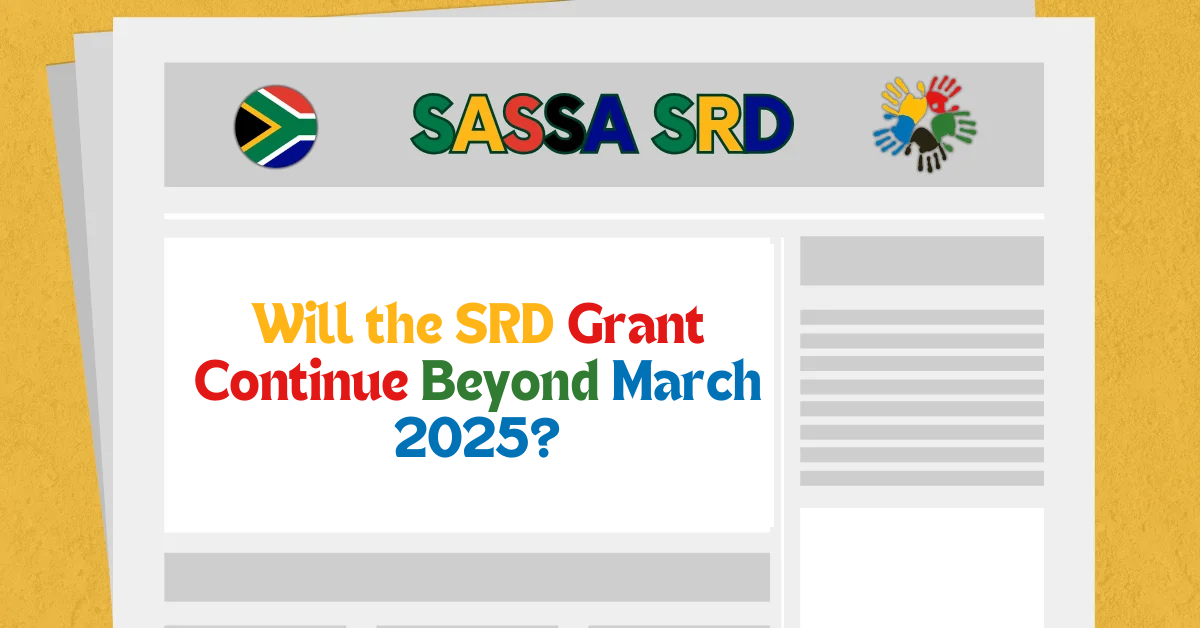
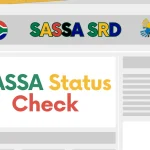
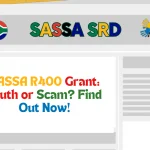
![SASSA Status Check for Grant-in-Aid [2025] SASSA Status Check for Grant-in-Aid](https://srdcheckstatus.co.za/wp-content/uploads/2025/01/SASSA-Status-Check-for-Grant-in-Aid-150x150.webp)
![SASSA Status Check for Disability Grant [2025] SASSA Status Check for Disability Grant](https://srdcheckstatus.co.za/wp-content/uploads/2025/01/SASSA-Status-Check-for-Disability-Grant-150x150.webp)
